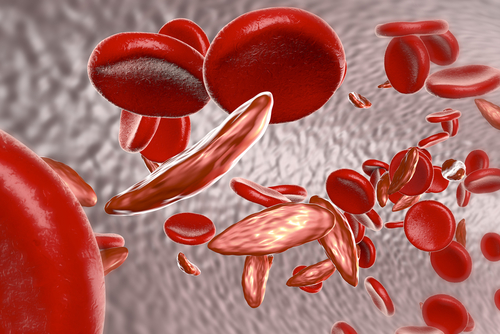
Sickle Cell Anaemia affects the haemoglobin in red blood cells, which carry oxygen from the lungs to all parts of the body. Sickle cell anaemia is a genetic condition where the red blood cells are not a normal (biconcave) shape. Instead, they look like sickles. Due to it being genetic, people are born with this condition.
The Negative Effects of Sickle Cell Anaemia
Normal blood cells live for around 120 days and are constantly being replaced. Red blood cells containing sickle haemoglobin do not live as long, consequently resulting in a chronic state of anaemia. When sickle haemoglobin gives up its oxygen to the tissues of the body, it sticks together to form long rods inside the red blood cells making these cells rigid and sickle-shaped.
It is not always easy to detect signs and symptoms of sickle pain. Therefore, anyone who says they are in pain or is having a problem must be trusted and treated accordingly. If there are any concerns, do not hesitate to visit your GP. Symptoms include pain in muscles, limbs, back, and stomach. On some occasions, this can be severe. Swelling occurring in the hands and feet, and joints are also stiff and painful. Pain can be triggered by infections, dehydration, over-exertion, excitement, cold weather and bumps and bruises.
Most of the time a child will feel fine, but the anaemia will make them tired and unwell. People with sickle cell anaemia are at higher risk of developing severe infections. If this occurs, a course of antibiotics is often necessary.
The Positive Effect of Sickle Cell Anaemia
With all of the negative effects of having sickle cell anaemia, there is at least one benefit to having this condition: People with sickle cell anaemia cannot contract malaria. It is just a freak of nature, in that the pathogen which causes malaria (a parasite called Plasmodium malariae) cannot survive in the affected blood cells. This is very beneficial, especially if the person with the condition lives between the Tropic of Cancer and the Tropic of Capricorn. It is here where malaria is a serious issue, so can actually benefit the person in some aspect.
For more information on training courses, visit our “Courses” page which also includes our First Responder and First Person on Scene (FPOS) Courses. If you have any queries, don’t hesitate to contact us via our website or call us on 01206 805359.
